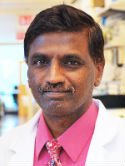| Abstract: |
Embryonic stem cells are usually characterized by self-renewal and pluripotency as defining properties. On the other hand, adult stem cells are widely believed to be associated with an orderly quiescence and requisite multipotency. Selective epigenetic control at the level of reversible histone and DNA modifications have recently been realized to have a fundamental role in specifying and maintaining a particular identity of stem cells. Recent progress in deriving the inducible pluripotent cells from terminally differentiated cells basically relies on the successful reversal of the developmental specification and associated epigenetic restrictions. All of the epigenetic changes that take place on the DNA without altering its sequence appear to occur by the sequential and stepwise biochemical reactions mediated by a definite set of highly conserved multi-protein complexes called polycomb group proteins (PcG proteins). Although much is known about the involvement and the potential mechanism of the PcG proteins in maintaining cellular identities, how exactly the PcG protein levels are regulated during stein cell maintenance remains unknown. Moreover, during an aberrant differentiation such as that occur in various cancers, the levels of PcG proteins are differentially affected, resulting in ail impairment of PcG protein homeostasis. In this chapter, various possibilities are discussed as to how the PcG protein homeostasis may be interpreted in the light of stem cell identity. Potential feedback regulatory loops that control the accumulation of the PcG proteins are hypothesized to play an important role in stein cell maintenance. Autoregulatory controls have long been realized as some of the many means of regulating a spectrum of multi-protein complexes in cell biology. A dysregulation in such feedback control of PcG proteins may result in an escape from regulated quiescence and self-renewal that may in turn lead to a loss of stem cell identity and the onset of an aberrant differentiation leading to diseases such as cancers. |



